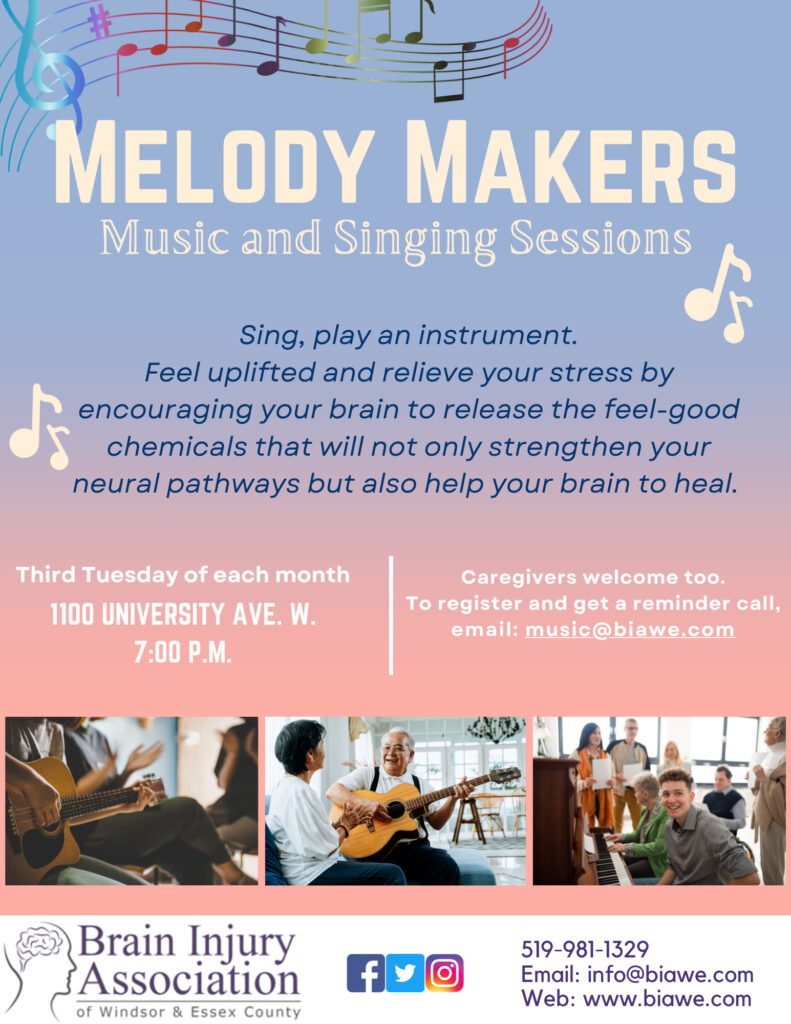We are offering singing/music sessions once a month for both those living with a brain injury and their caregivers.
Enjoy a social evening out doing something fun and good for your brain.
Music has a profound impact on the brain, influencing various cognitive, emotional, and physiological processes. Here are some ways in which music helps the brain:
Emotional Regulation:
Music can evoke a wide range of emotions. Listening to uplifting or calming music can positively affect mood and reduce stress. It has the power to convey and enhance emotions, providing an outlet for expression and catharsis.
Memory Enhancement:
Music has the ability to enhance memory and facilitate learning. Many people find it easier to remember information when it is associated with a musical element. This is known as the “Mozart effect,” which suggests that listening to music, particularly classical music, may temporarily improve spatial-temporal reasoning skills.
Cognitive Performance:
Background music can improve cognitive performance in various tasks. While the effects may vary among individuals and depend on the complexity of the task, music has been shown to enhance attention, focus, and problem-solving abilities in certain situations.
Neuroplasticity:
Music can stimulate neuroplasticity, the brain’s ability to reorganize itself by forming new neural connections. Learning to play a musical instrument or engaging in musical activities can lead to structural changes in the brain, particularly in areas associated with motor skills, auditory processing, and memory.
Mood Regulation and Stress Reduction:
Music has the power to influence the release of neurotransmitters, including dopamine and serotonin, which are associated with pleasure and mood regulation. Listening to music can be a natural way to alleviate stress, anxiety, and depression.
Motor Skills and Coordination:
Playing a musical instrument requires the coordination of various motor skills, which can have a positive impact on brain development. Musicians often demonstrate enhanced motor control and coordination compared to non-musicians.
Pain Management:
Music therapy has been used as a complementary approach to pain management. Listening to music can distract individuals from pain, reduce the perception of pain, and even contribute to the release of endorphins, the body’s natural painkillers.
Social Connection:
Music has a social aspect that can contribute to a sense of community and connection. Participating in group music activities or attending concerts can foster social bonds, promoting overall well-being.
Sleep Improvement:
Calming music has been shown to improve sleep quality. Listening to relaxing music before bedtime can help reduce anxiety and promote a more restful sleep.
In summary, music engages various regions of the brain, influencing emotions, cognition, and physiology. Whether through listening or active participation, incorporating music into daily life can have numerous positive effects on the brain and overall mental health.
To learn more, complete the “Request for Service” form here.



